| Umělec magazine 2002/2 >> Feel Like Some Art? Call 1-900-1lenka | List of all editions. | ||||||||||||
|
|||||||||||||
Feel Like Some Art? Call 1-900-1lenkaUmělec magazine 2002/201.02.2002 Martina Pachmanová | focus | en cs |
|||||||||||||
|
"Immediately after the fall of the Iron Curtain, Czech society was hit by an unprecedented deluge of goods. Shopping fever has
relieved the unquenchable desire for the free market and at this point nearly anything could become a commodity, including the human body. Immediately after the fall of the Iron Curtain, Czech society was hit by an unprecedented deluge of goods. Shopping fever has relieved the unquenchable desire for the free market and at this point nearly anything could become a commodity, including the human body. Under Communism, pornographic magazines and videos were smuggled into the country from the West; now, with the arrival of a new era, the Czech lands have been inundated with the stuff. At the newsstands next to the dailies you find both ticklish erotic magazines and their “hard-core” cousins. The streets of Czech cities are crowded with sex shops, peep shows, nightclubs and shrewdly camouflaged massage salons. The main highways near the border resemble one large brothel. Some are shocked that the morality of the Czech nation has fallen so low, while others claim to be enjoying the benefits of freedom; but only the rare few are actually occupying themselves with the phenomenon of the eroticization of public Czech life. Even the contemporary art scene is bogged down in sexual themes. (Veronika Bromová recently commented that it’s like a sexual epidemic.) Similar to Czech pornography, cheap, pandering and mostly banal erotica prevails over sophisticated, unostentatious, yet exciting Eros. A critical approach to the exploitation of human sexuality is just not fashionable these days in Czech art. However in a few cases we can find both a critical approach and humor. When Lenka Klodová put on the exhibition Only the Name is Long in an Autumn Night at Špála Gallery last year in October, she successfully confirmed, once again, that she is one of the exceptions. Here she exhibited a series of painted over and decorated pages from pornographic magazines. Masturbating gestures, spread vaginas and silicon breasts were all clothed in the various national Czech costumes and snow-white cutout paper wraps. All that remained of what were originally sexy LEO magazine models were their lustful facial features, blissfully half-closed eyes and contorted positions. Like her previous “folk-like” work for the group exhibition Má vlast (My Country, VŠUP Gallery, 2001) — “ethnic” theater sets and paper collages of pornographic dolls — here Klodová also uncovers the absurdity of venal erotica, all the while maintaining an apparently chaste and childlike innocence in the esthetics. In her projects, instead of moralizing, the artist chips away at the problem of the objectification and commodification of the female body with typical irony, and she treats “her” porn stars with the exemplary love of a mother. Not only does she dress them up, but — as she demonstrates in her exhibition Mé ženy (My Women, Gallery Pokorný, Prostějov, 2001) — she also manages to put them to bed for an afternoon siesta. Klodová is very much aware that appropriating the language of pornography, while wishing to undermine it, is a risky game and that it’s only a short leap from banality and tackiness to cheap “artistic” entertainment. But obviously she’s got a knack for the game of nakedness. Maybe the best testament to this is her colorful Magazín Bříza (Magazine Birch, 2000). “You will be our prisoner,” “Satisfy me or leave me,” “I’m always excited in front of the camera,” “Call now 0900 111 674” — short seductive slogans, a centerfold and dozens of telephone numbers that the reader may call for a little fun — all reminiscent of picture magazines for men. Except for one minor detail. Instead of luscious blondes, brunettes, ginger, and black-haired babes, Klodová photographs birch trees “posing.” Anorexic tattered tree trunks and branches with clean white bark are either entirely naked or clad in colorful miniskirts, just short enough to disclose to the greediest voyeurs the most intimate of places — after all, right on the cover of the magazine the birch tree called Betyna taunts readers, “I’m wearingnothing under this skirt.” Klodová combines themes both serious and not, undertakes excursions from the sphere of “high” art to the realms of popular culture, mass entertainment and kitsch, and back again. But however profane and impudent her conduct, she is no iconoclast. Looking for a connection between the fantastic shapes of gnarled birch trees found in the forest and the artist’s training as a sculptor might take a little bravery. Nevertheless it is true that Klodová continues to work as a sculptor and that in the end her lighter (and of course I don’t mean to imply less significant) genres — collage, photography or performance — stand alongside her strong and bold artistic signature. The paper puzzle of animals from the sculpture installation Ostrovy Touhy (Islands of Desire) from the exhibition Matky a otcove v akci (Mothers and Father in Action, Universal NoD, 2000) were assembled from digitally modified fragments of erotic photographs, whose kaleidoscopic printing represented peculiar surface artifacts, distorting the sensual human body into abstract decor. With her monumental sandstone sculpture, MILUJI (I LOVE, 2001; concept 1998), Klodová demonstrates that abandoning traditional sculpting techniques and materials in order to bring an important social message to people is not a requirement of public art. This sculpture, which today adorns a hill behind a neighborhood in Neratovice, may at first sight call up romantic pathos or May Day lyricism. But it wouldn’t be like Klodová to proclaim everything at once, and she leaves the space open to allow the expression of its own meaningful ironic game, and for the imagination of whoever happens to walk along that day or night. The artist does proclaim her love, but to no one specific is it dedicated. In the same way she gives refuge to fallen women and searches for sexual desire in the “lap” of natural shapes, her “I love” carries unaffected personal meaning, which seduces viewers who then begin to investigate, not only the object of the artist’s desire but, more importantly, their own. It’s possible that commodification today is bursting into every corner of our lives, but Klodová’s wistful I Love — just like the prudent birch in the public park — is surely not for sale. "
01.02.2002
Recommended articles
|
|||||||||||||
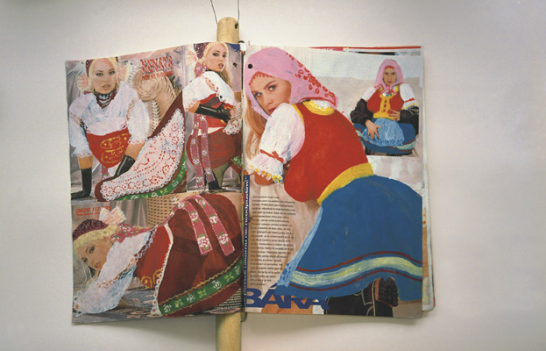
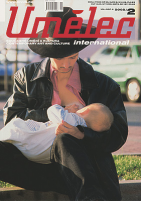







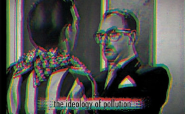
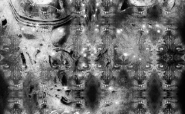
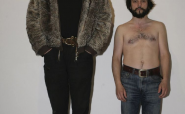
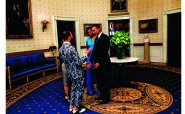
Comments
There are currently no comments.Add new comment